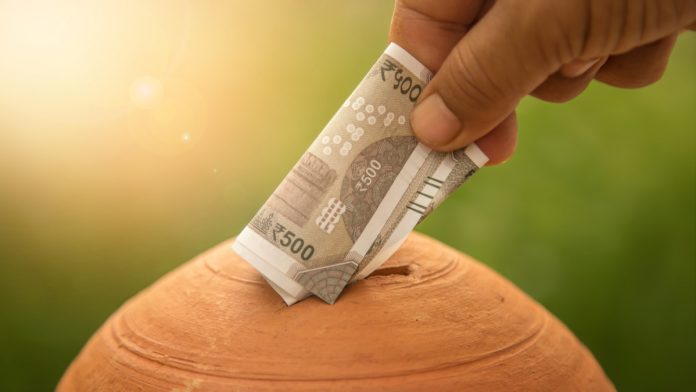- Indian Rupee (INR) falls for a 6th day
- Oil falls as China COVID cases rise
- US Dollar (USD) rises on safe-haven demand
- China worries lift the USD
The US Dollar Indian Rupee (USD/INR) exchange rate is rising for a sixth straight session. The pair rose +1.4% yesterday, settling at 81.61 on Friday. Today, at 10:30 USD/INR trades +0.19% at 81.75, trading in a range between 81.67 to 81.92.
According to analysts at investment bank Goldman Sachs, India’s economic growth is set to slow to 5.9% next year. This would be down from the expected 6.9% growth this year as tighter economic policy slows domestic demand and as the momentum from COVID reopening fades. The post-COVID reopening boom in India was stronger than in most other emerging markets.
Last week the Reserve Bank of India forecast economic growth at 7% for 2022/23.
Meanwhile, Goldman Sachs sees headline inflation dropping to 6.1% next year, down from 6.8% this year.
Separately falling oil prices could offer some support to the Rupee. West Texas Intermediate trades close to a 2-month low after falling 10% across last week. Rising COVID cases in China are hurting the demand outlook.
The US Dollar is across the board at the start of the week. The US Dollar Index, which measures the greenback versus a basket of major currencies, trades at +0.5% at the time of writing at 107.54, adding to gains of 0.6% from last week.
The US dollar is charging higher, boosted by safe-haven flows as China’s COVID cases rose, fueling fears of slower global growth.
Several Chinese cities have logged a sharp spike in COVID cases over the weekend. Higher infections saw new lockdown restrictions imposed in several economic hubs including parts of Beijing and Shanghai.
Economic growth could slow considerably if China headed back into lockdown. Data last week highlighted the impact that the zero-COVID policy was having on the Chinese economy.
Today there is no high impacting US economic data. The minutes to the Fed meeting on Wednesday could be the main focus in this holiday-shortened weak.





